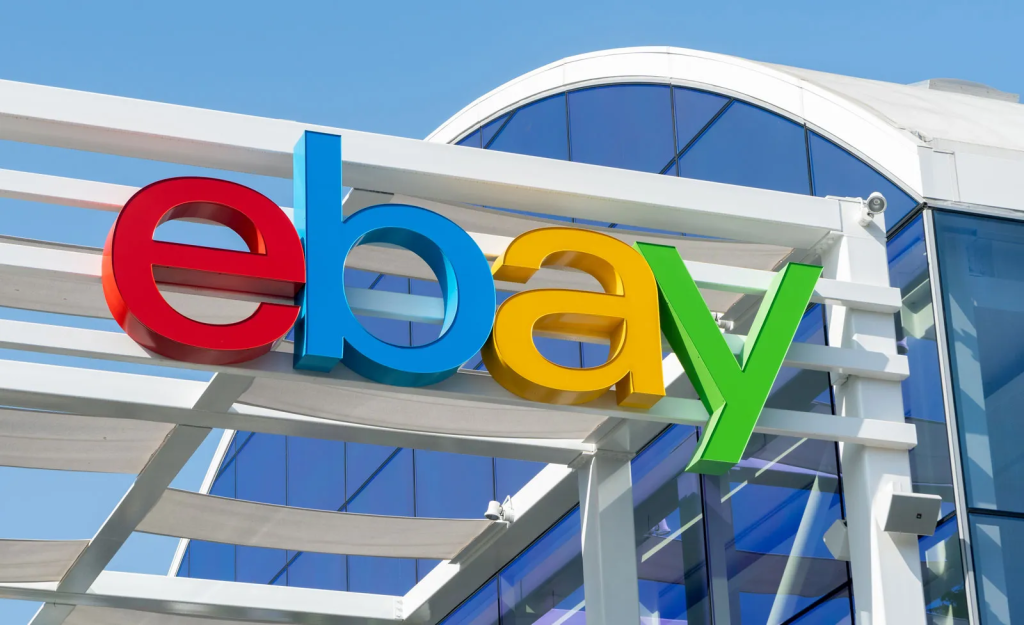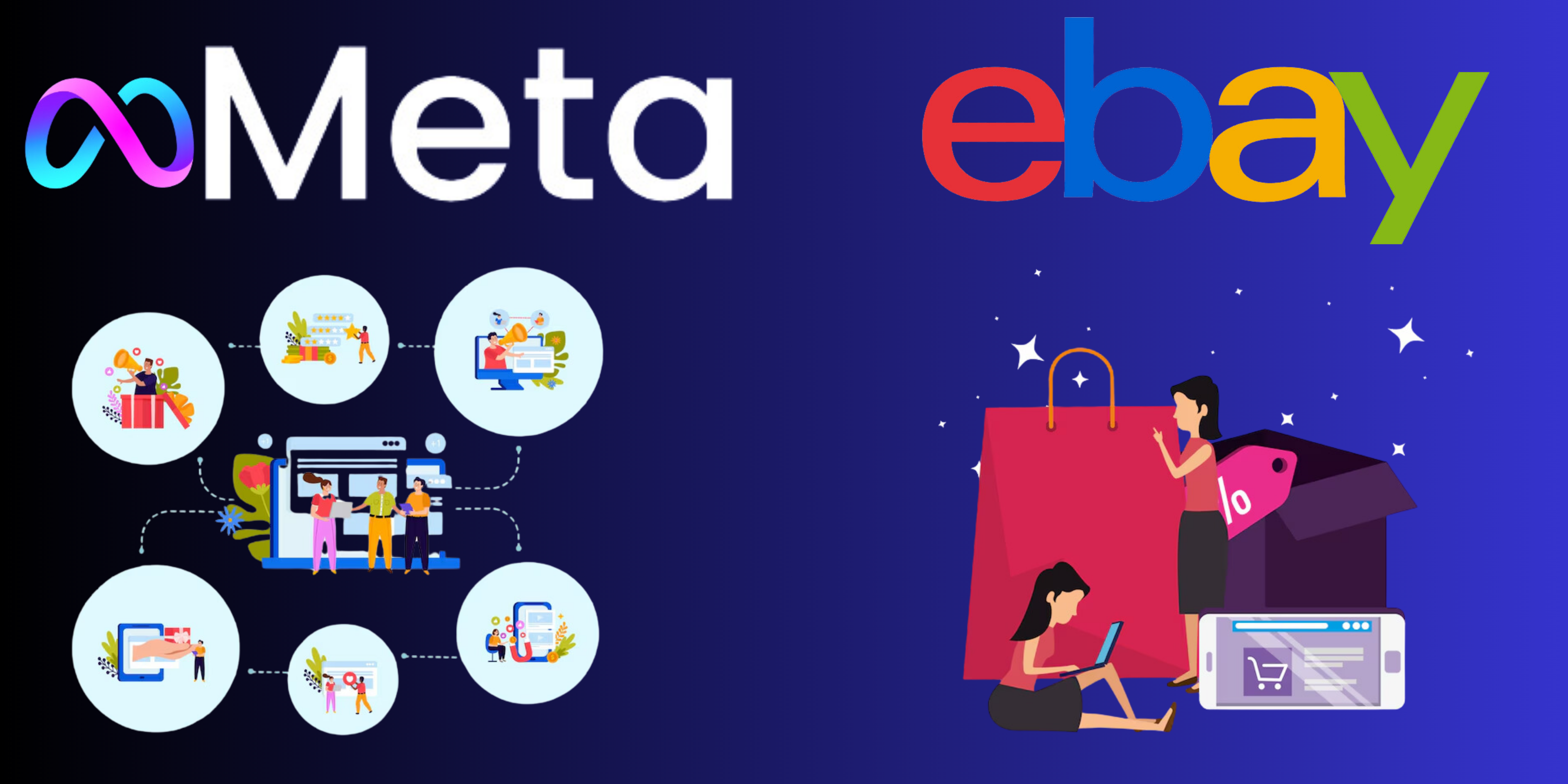Table of Contents
Imagine browsing for a cool toy, a bike, or even a video game on Facebook Marketplace and discovering listings from eBay. This is exactly what Meta, the company that owns Facebook, is currently testing. By allowing Facebook Marketplace users to view eBay listings, Meta hopes to make buying and selling even easier. This partnership isn’t just about shopping; it’s also part of Meta’s efforts to comply with European Union (EU) rules. Let’s explore how this works, why it’s happening, and what it means for users.
What’s Happening Between Meta and eBay?

Meta has started testing a feature that integrates eBay listings into Facebook Marketplace. This means that when users search for items on Marketplace, they might also see products listed for sale on eBay. The idea is to give people more options when they’re shopping for something online.
This change is part of Meta’s effort to meet new EU rules, which encourage tech companies to offer more choices to users and avoid unfair competition. By including eBay, Meta is expanding its shopping platform and showing that it’s open to working with other companies.
What Is Facebook Marketplace?

Facebook Marketplace is an online platform where people buy and sell items locally. It’s like a digital yard sale where users can find everything from clothes and furniture to electronics and cars.
The marketplace is popular because it’s easy to use. You can browse items nearby, message sellers, and even arrange local pick-ups or deliveries—all within Facebook. By adding eBay listings, Marketplace becomes even more powerful, offering a wider range of products without leaving the app.
What Is eBay, and How Does It Work?

eBay is one of the oldest and most well-known online shopping platforms. It’s different from Facebook Marketplace because it focuses on auctions and global sales. People can list items for bidding or set fixed prices, and buyers can shop for new and used products worldwide.
With eBay joining forces with Facebook Marketplace, users get the best of both worlds: the local convenience of Marketplace and the global reach of eBay. This means you could find rare items from sellers far away while still browsing locally for everyday needs.
Why Is Meta Doing This?
There are two main reasons why Meta is testing this new feature:
- More Choices for Users: By showing eBay listings on Facebook Marketplace, Meta is giving users access to a larger variety of products. This makes shopping more convenient and increases the chances of finding exactly what you’re looking for.
- Following EU Rules: The European Union has strict rules about fair competition among tech companies. By collaborating with eBay, Meta is showing regulators its willingness to share its platform with other businesses and give users more options.
This move also positions Meta as a company that supports partnerships rather than dominating the market alone.
Benefits for Users
Here are some ways this partnership could help people who shop online:
- More Products: You’ll have access to eBay’s wide range of items in addition to what’s available on Facebook Marketplace.
- Better Deals: With more options, you can compare prices between Marketplace and eBay listings to get the best deal.
- Convenience: You don’t have to switch between apps or websites to find what you need. Everything is in one place.
- Global Access: eBay’s international listings mean you can discover unique or hard-to-find items that aren’t available locally.
For sellers, this partnership might bring more visibility to their listings, increasing their chances of making sales.
Challenges to Consider
While the partnership between Meta and eBay sounds promising, there are a few challenges to think about:
- Shipping Costs: Many eBay items come from far away, so buyers might need to pay for shipping, unlike local Marketplace deals.
- Different Policies: eBay and Facebook Marketplace have their own rules for refunds, returns, and buyer protection, which might confuse users.
- User Trust: Some people might be cautious about buying from eBay sellers they don’t know, especially if they’re used to dealing with local sellers on the Marketplace.
Despite these challenges, this partnership offers exciting possibilities for online shoppers.
How This Affects Online Shopping
This collaboration between Meta and eBay could change how people shop online in a big way. Imagine being able to search for a second-hand camera and seeing both local options from Marketplace and global options from eBay in the same app. This saves time and makes shopping easier.
For businesses, this could be a great way to reach more customers. Sellers on eBay might attract new buyers through Facebook Marketplace, while local sellers might benefit from increased traffic on the platform.
What’s Next for Meta and eBay?
The testing phase will help Meta understand how users feel about this feature. If it’s successful, we might see more collaborations like this in the future. For example, Meta could add listings from other popular platforms, creating a one-stop shop for everything you need.
This also shows how technology is evolving to make online shopping faster, easier, and more user-friendly. Companies like Meta and eBay are working together to shape the future of e-commerce in exciting ways.
Conclusion:
Meta’s decision to bring eBay listings to Facebook Marketplace is a bold move that benefits both users and businesses. It offers more choices, better deals, and a convenient shopping experience, all while addressing EU rules about fair competition.
For shoppers, this partnership means access to a wider range of products in one place. For sellers, it’s an opportunity to reach more buyers and grow their businesses. As Meta and eBay continue to innovate, the future of online shopping looks brighter than ever. So, whether you’re hunting for a rare collectible or just browsing for everyday items, this collaboration could make your search much easier!




































